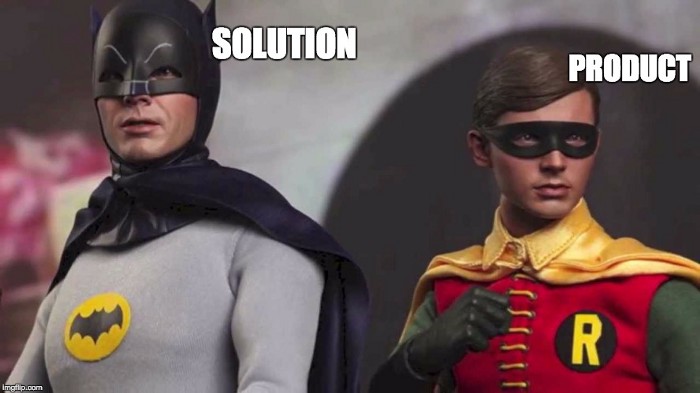Being a Sales Engineer, I spend most of my time demoing. Having demoed so many times, I find it surprising that now I can demo without practice, without effort. Demoing has become like brushing my teeth — I get on a call and it happens automatically.
This is when it hit me, I’m not learning anything new and I’m certainly not getting better. I decided to take a step back and introspect. This is typically what I do at demos:

Once I realised that I’m blindly following a pattern, I become self aware. I decided to break that pattern and immediately ran into trouble. My demoes weren’t as fluid as they were before as I consciously tried to do things that I wasn’t comfortable with. It broke the flow but that was required. I wasn’t getting any better.
Your demo was never a demo of your product
It took me a while to realize that a ‘demo’ in the SaaS world is actually not supposed to be a ‘demo’. A demo here means that you and a prospect are discussing a potential solution(not the product) to their problems.
If your product ‘demo’ is a superhero movie, then your product is not the hero but only a sidekick.

My demo was a product centric discussion — I talk about the product, what it can do(carefully avoiding what it can’t do) and how awesome it is at doing that. Since I’m the product expert, most of the time it’s just a boring monologue by me.
However, a demo is supposed to be a solutions centric discussion —we should discuss a solution to a potential problem. The product may or may not be a part of this conversation.
‘Product demo’ is wrongly labelled. If it was up to me, I’d ban the word and instead call them a ‘Product conversation’
How do we have this conversation?
I’m the guy my friends and family come to when they want to buy a new phone. I’m updated on the latest phones and the features they bring. I read tech blogs a lot.
I qualify for the ‘What phone should I buy next?’ because I don’t tell them the BEST phone. I suggest a phone that’s within their budget and can do most of what they want. If it can’t do anything, I tell them that as well.
Above all, the most important reason is: I care. I’m genuinely interested in helping them find the right phone. I feel happy when they come back after 2 months of using the phone telling me it’s perfect. I’m scared that the phone I suggest might not be the right one. I care about their decision especially if I’m helping them make that decision.
It took me a while to apply this to my job. I’m currently on a path to turn all my demos into conversations. I wouldn’t say I’ve mastered this art but I wanted to share what I’m doing to get there:
Don’t just be a product expert, be a domain expert
Product knowledge is overrated. Develop domain expertise and truly become a consultant. Read blogs, watch videos and most importantly — talk to people and learn from their experience.
Your prospects should learn things from you that they can’t learn from Google
Be genuinely interested in your prospect
You will not be able to suggest the best solution if you don’t care about what your prospects do(leave alone their problems). Be interested to find out what they do, how they run the show and where they’re facing challenges.
Don’t listen to them because it’s your job. Listen to them because you want to.
Learn from every product conversation
Every conversation with your prospect is a great chance to learn about what they do. It’s an indirect way to build domain expertise. Always look for new things to learn.
Avoid your language, talk their language
You know your product like the back of your hand. Your prospects are looking at it for the first time. There’s a BIG gap. A ‘demo’ is not the time to show off your product knowledge. My target before every first product conversation is to not use a single word from my product.
Lastly, be honest
A product conversation is one of the first interactions between you and a prospect. If you know that something will not work, say it won’t work. Leaving them hanging unnecessarily only to get back with a negative response will contribute to bad customer experience.
I’m ending this article with a plea. Let’s start scheduling Product Conversations from now on. A purpose of a demo can be met through a 5 minute video. A conversation can deliver much more value and it needs a human-a Sales Engineer. What do you choose?
Happy demoing-oops, happy conversations!
Originally published on the Freshworks blog
You've reached the end. This is where I ask...
you to join my newsletter. Every week, I'll send you links to interesting things I learn, book, app & video recommendations along with something to make you laugh. Want to join?
